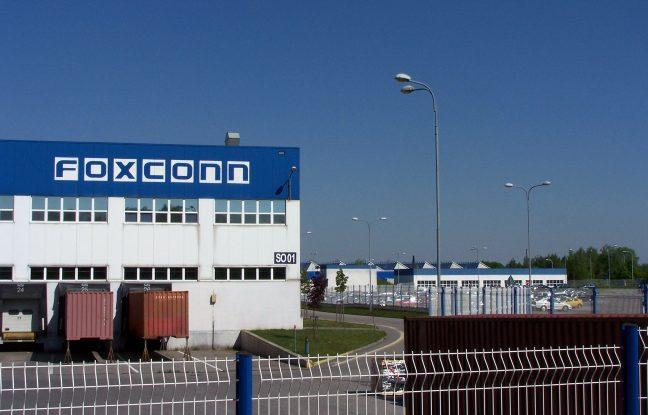Despite being 25% through the University of Wisconsin’s partnership with Foxconn, UW has received 0.7% of a $100 million gift.
The partnership was proposed and initiated to support interdisciplinary research on the Madison campus, establish Foxconn Institute for Research in Science and Technology, as well as pursue further collaboration. Foxconn Technology Group and its chairman and founder Terry Gou, announced plans to invest the $100 million in engineering and innovation research at UW on August 27 of last year.
FIRST is to be located at the Wisconsin Valley Science & Technology Park near Racine as well as having an off-campus presence in Madison. UW spokesman John Lucas points to Foxconn’s executive changes as a reason for this delay.
“However, as a result of changes in Foxconn’s executive leadership and business priorities, there has been no significant progress in discussions related to the $100 million investment that was announced in August 2018,” Lucas said.
These changes include former Chairman Gou leaving Foxconn and eyeing a run for presidency as well as executive Louis Woo, who represented the Taiwanese company in Wisconsin, stepping down. Lucas stated UW continues discussion with other Foxconn business groups and hopes discussions will progress in the coming months.
UW was to match Foxconn’s gift with plans to fundraise an additional $100 million as part of a $200 million fundraising sub-campaign of the $3.2 billion All Ways Forward, a campaign to support research. A majority of the gift from Foxconn was to go toward a new interdisciplinary facility for the College of Engineering, which would replace 1410 Engineering Dr.
State Rep. Chris Taylor, D-Madison, was unsurprised by the news and cited several blunderous Foxconn promises, including the Pleasant Prairie project. Since the original $3 billion deal approved by Scott Walker, Foxconn has failed to meet job quotas set in their contract to receive state credits and changed its plans. According to Governor Tony Evers, the Foxconn factory will only produce 1,500 jobs upon starting production next May, making this the second time Foxconn will have failed to meet job targets.
“I’m not surprised that there were a lot of promises made and little delivery,” Taylor said in regards to the UW partnership.
Taylor explained that the Foxconn deal came out of a very political context — former Gov. Scott Walker was up for reelection. Taylor suspects that Walker was concerned due to his failure to meet his promise of creating 250,000 jobs and that the deal was pushed through in an attempt by Walker to get reelected.
Taylor said the deal was pushed through very quickly and was not investigated as closely as a deal of its size should be. There was no thorough cost-benefit analysis to compare to other possible investments. Taylor called the project an agreement between Gou and Walker.
“There was so little oversight at the state level on this Foxconn scam,” Taylor said.
Taylor pointed out Wisconsin is not the only place to experience a Foxconn letdown. Brazil shares the same story UW and the state of Wisconsin have experienced.
In Brazil, Foxconn made similar promises — they would invest billions, build a large manufacturing hub and produce 100,000 jobs. In 2017, six years later, Foxconn employed about 2,800 workers in Brazil. Foxconn shouldered the blame for their scaled-down operations on Brazil’s market conditions changing along with the changing needs of their customers. According to Wisconsin Public Radio, Foxconn had similar statements in regards to the Pleasant Prairie project.
“Foxconn’s plans have changed several times since announcing its intent to build flat screens in Wisconsin in 2017 with a 22 million-square-foot Gen 10 plant,” a WPR article reads. “Foxconn officials said market changes prompted the company to shift to a smaller Gen 6 facility where smaller screens for cell phones and iPads could be manufactured.”
Taylor said as a supporter of UW, she wants UW to be a part of the research bringing a product to market and emphasized her understanding of UW’s decision to partner with Foxconn. Taylor feels UW deserves such a large investment, but worries that Foxconn makes a lot of “pie in the sky” promises and fails to deliver, such as a $100 million gift.
“I don’t want to be a naysayer here, but I would be shocked if that amount was ever actually realized,” Taylor said.


